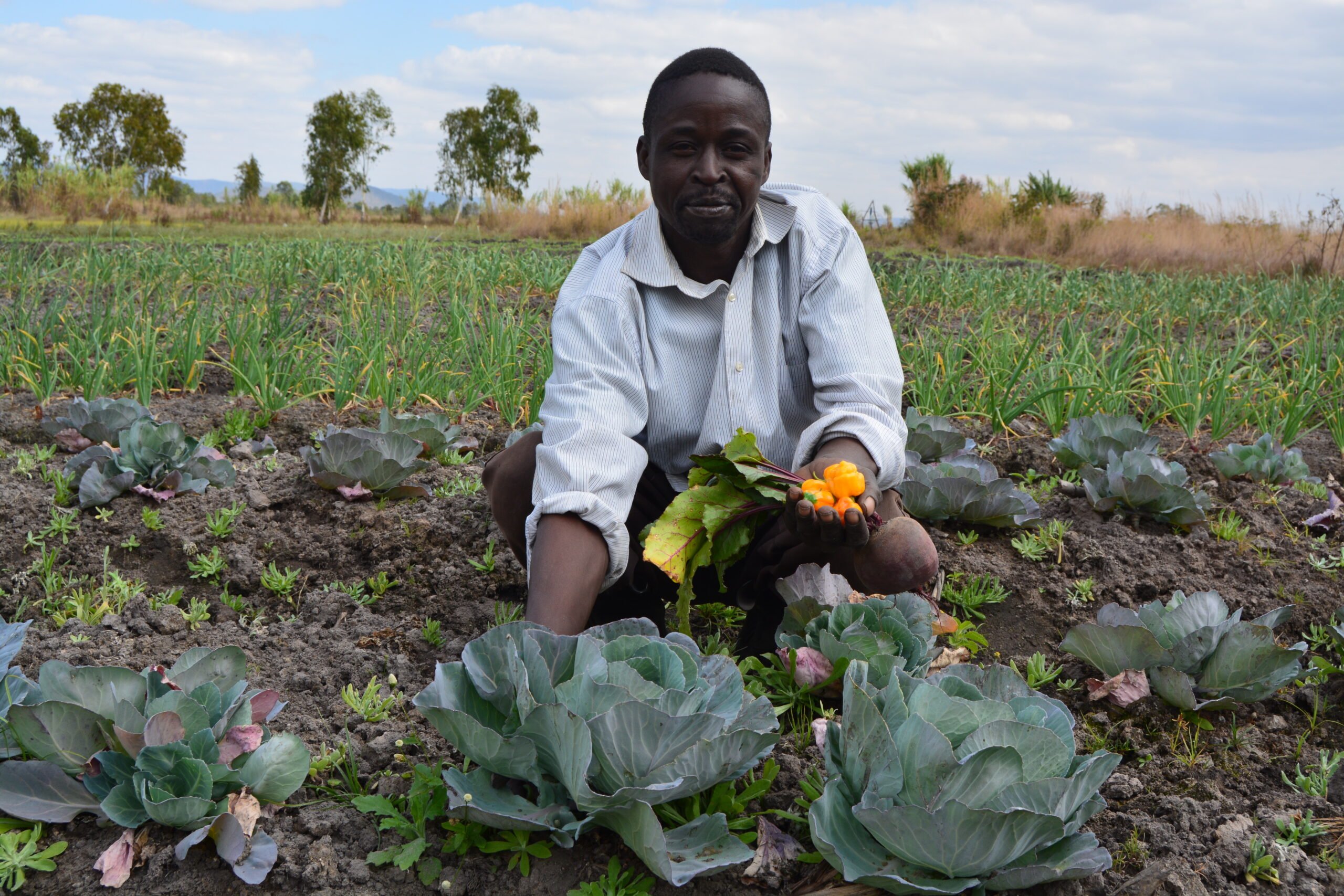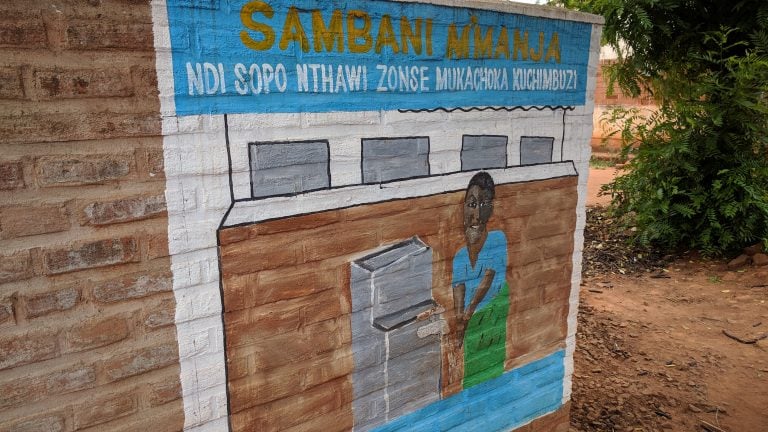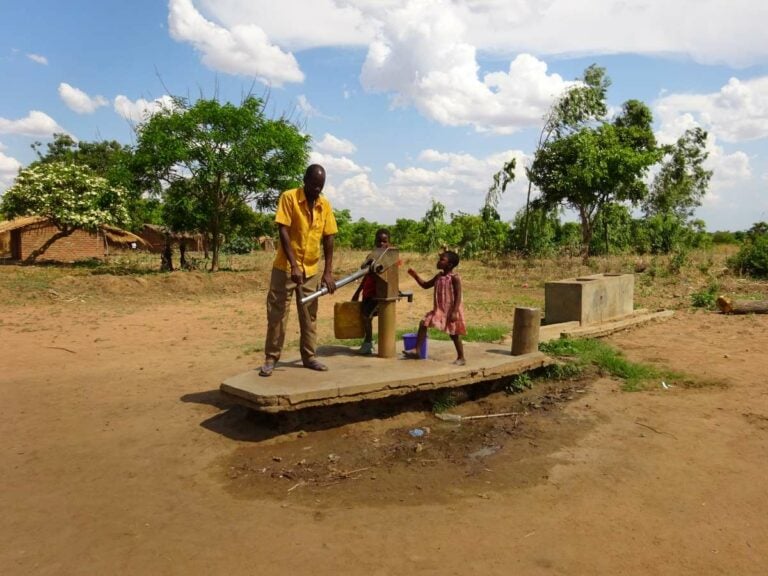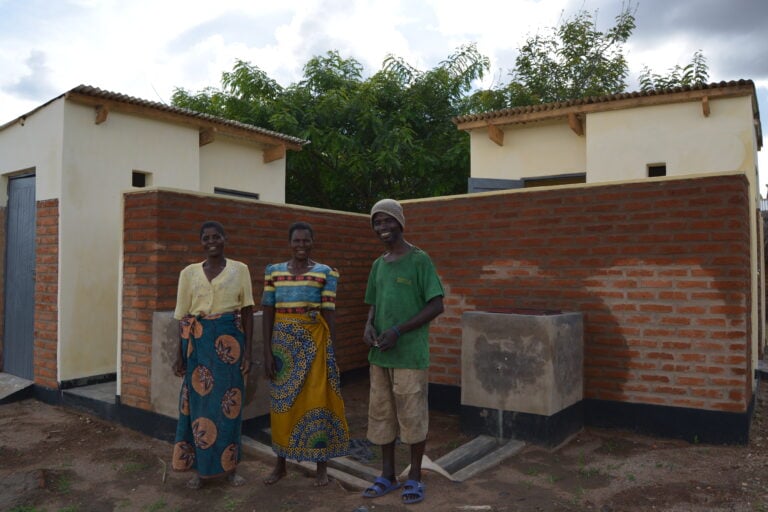Reflections from a pump aid supporter’s visit to Malawi
Having supported Pump Aid Malawi for several years it was a privilege in March 2020, on the back of a family trip to Malawi, to see for myself some of the work they have been doing. Hosted by Chikondi, Arlington, and Hendie we fitted a lot into our 2 day visit in the Mchinji District to the west of Malawi, on the Zambian border.
Here we were away from the more touristic spots that we had already visited. So by this time we were starting to know a little about Malawi. We had experienced a warm welcome, seen some wonderful scenery and grasped that transport is mostly on foot or on bicycles. We had also realised that whilst the main roads are reasonably good accessing rural communities involved some ‘interesting drives’ on unsurfaced roads. As our visit was towards the end of the ‘rainy season’ we were pleased we had hired a suitable 4×4!
Firstly we went to villages who have had Elephant Pumps for a while. Here we talked to the village Water Point Committee, including those who took the lead in maintaining each pump. This brought it home to us why the technology needs to be simple and that calling for any help is not done lightly! It was great for us to talk to area mechanic Kasalika, and later to George and Joseph who dig wells and install new pumps. Just seeing their somewhat basic equipment made us realise just how different things are in Malawi to our experiences at home!

Our second day started with a visit to Kankhande. Here, proudly wearing their Pump Aid T Shirts, we met Godfrey and Christina. They were inspirational local volunteers helping their communities understand and commit to WASH (Water Sanitation and Hygiene) improvements. We were told about how they had first met the village chief to get their support. They then illustrated what had been achieved by telling us before and after details of the numbers of households who had basic or improved latrines and those with handwashing facilities. The key indicator being that diarrhoea was now much less prevalent and this means that school, and pre-school, attendance is much better.
We were then taken on a walk around the village to see the family latrines and the ‘canny’ hand washing devices that were being used. These are basically a suspended water bottle which, when upturned by pulling a string with a foot, gave water for handwashing. Soap being kept in another nearby container.

In Chisewa we visited a Community Based Childrens Centre (or CBCC) attended by pre-school children from the village. This was an established CBCC with recently installed Elephant Pump and latrines. Here even the very young were being taught the importance of hand washing and hygiene.
The final part of our visit covered the more recent, Beyond Water, aspect of Pump Aid Malawi’s work. This is allowing households to purchase their own ‘self-supply’ pump or to have a basic irrigation pump. The cost being equivalent to the value of 3 goats or 2 bicycles. Having their own supplies benefits householders as they do not have to go a distance to get water and then queue. It also makes it easier for others as it reduces the demand on village pumps.

Our trip was just before the Covid-19 ‘lockdown’. We know only too well how the coronavirus situation has impacted on us in the UK and now think about how the people we met in Malawi, where many rural families live in single room dwellings, are coping. Normally this functions as they are able to do many household tasks outside; but shared water pumps have metal handles and handwashing facilities are basic. From our visit, we know that Pump Aid is doing what it can to ensure that pumps are kept working and that the importance of hand washing is stressed. So, having seen for ourselves the real difference that their work is making to people in Malawi, we can only encourage all to support Pump Aid. Martyn Speight (April 2020)
Martyn Speight (April 2020)
